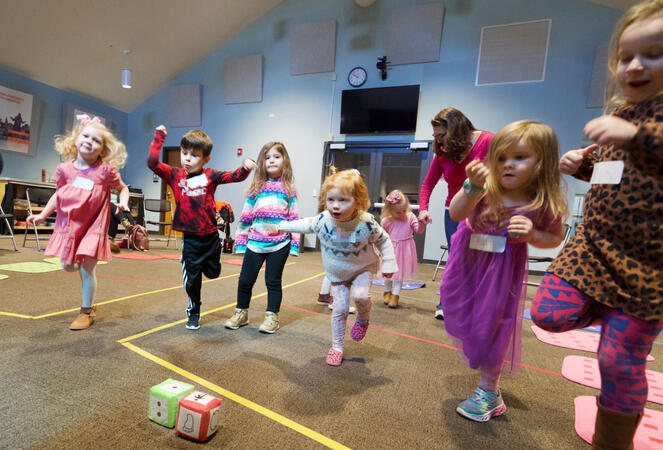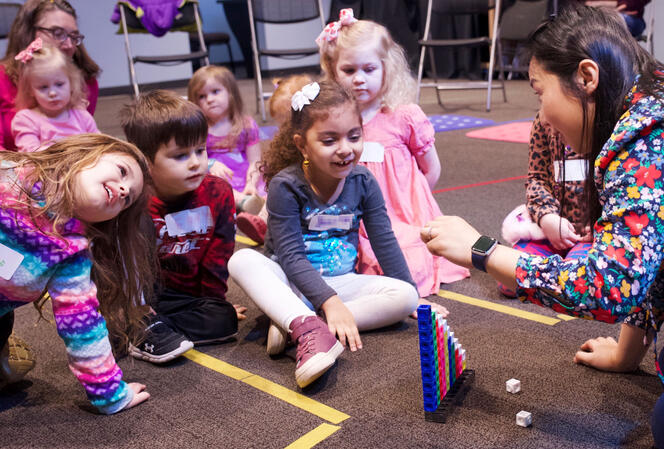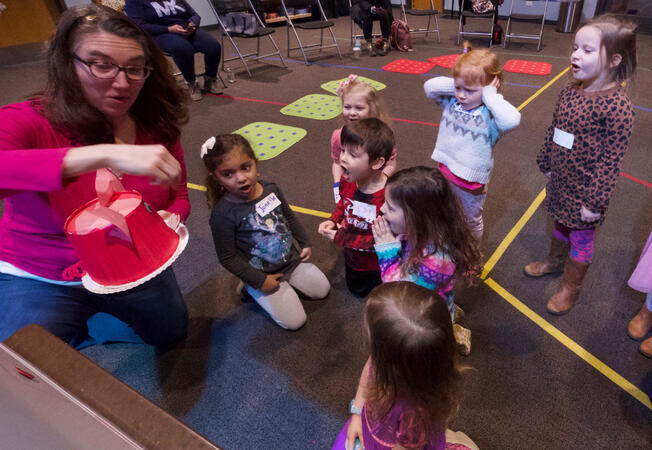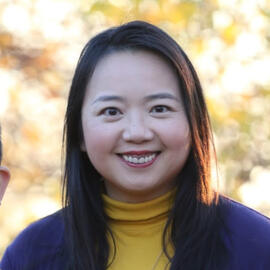
Registration
We have reached our capacity for registration of summer camp 2024. If you would like to be put on the waitlist, please contact us via [email protected]
about the program
Math Magic is an in-person game-based math program that focuses on building number sense and fundamental math skills for preschoolers and K-5 students. Through fun activities like group games, magic, puppet shows, and storytelling, we will help children to construct an in-depth understanding of math concepts and skills.This pilot program is part of our effort to provide families and educators with resources to help children to achieve in-depth math understanding in a fun and relaxing way. Please visit our website CoconutMath for our online resources.
Recap from summer 2023
upcoming summer camp
Location
Hickory Creek Church
10660 W. Lincoln Hwy Frankfort, IL 60423
Time
Monday-Thursday 9:30 am-11:15 am
July 8th-11th AND 15th-18th
* This is an eight-day camp. When you register, please make sure that your child can attend sessions in both weeks.
TOPICS
Place Value (MathMagic Place'd to Be )
Understanding place value is the key to grasping the meaning of multidigit numbers as well as various arithmetic algorithms such asaddition, subtraction, multiplication, and division.Lacking this comprehension makes most of k-5 math algorithms extremely difficult to understand, painful to memorize , and prone to be forgetten.Recognizing 35 as a three tens and five ones, rather than just the number succeeding 34, is fundamental for understanding the meaning of multi-digit addition, subtraction, multiplication, and division algorithms. It also lays the groundwork for pre-algebra and algebra in later grades.During the summer camp, we will dive deep into the fundamental concept of place value, and uncover how it is intergrated in many math algorithms and operations .Fractions (MathMagic Fraction Funhouse)
While fractions are always introduced as a tool for cutting pizzas and pies, it is important to see fractions beyond its basic meaning as this concept is also widely used in calculating speed, time, productivity, etc.Recognizing fractions as an operation (the numerator divided by the denominator) is vital to understand the meaning of fraction multiplication and division. Such understanding also lays the foundation for algebra learning in higher grades.During this camp, we will dive into the world of fractions in a mathematically meaningful way that goes beyond cutting pizzas and pies. Gain a deep understanding of fraction operations instead of memorizing the algorithms.
Participants
MathMagic Place'd to Be
(Place Value)
(20 spots available):
children entering 2nd and 3rd gradeMathMagic Fraction Funhouse
(Fractions)
(20 spots available):
children entering 4th and 5th gradeBoth groups will attend 9:30am-11:15am.We understand that children learn at different paces. If you think that your children will benefit from the camp, but they are not in the listed grades. Please contact us ([email protected]) first to confirm that the camp will fit the need of your children.
Daily Schedule:
9:25 am: arrival9:30 am-10:15 am: "Place'd to Be" students participate in group activities in the main room; Fraction students play math board games in small groups in the breakout rooms.10:15 am-10:30 am: restroom and water break, between-session activities.10:30 am-11:15 am: "Fraction Funhouse" students participate in group activities in the main room; Place Value students play math board games in small groups in the breakout rooms.11:15 am: dismissal
Content and Activities
Formats of activities:
1. Group games and races;
2. Word problem theater;
3. Mistakes detectives;
4. Math talks round table;
5. Magic shows and curiosity rewards.Content and topics:
MathMagic Place'd to Be (2nd and 3rd grade):
1. Ten frames;
2. Place value;
3. Hundred chart;
4. Addition strategies;
5. Subtraction strategies;
6. Multiplication strategies;
7. Division strategies;
8. Word problems.MathMagic Fraction Funhouse (4th and 5th grade):
1. Intro to fractions: the meaning of numerator, denominator, and vinculum ;
2. Reciprocal;
3. Greatest common factor and least common multiple
4. Fraction Addition and subtraction strategies;
5. Fraction multiplication and division strategies ;
6. Fraction word problems.
about our word problem theater

Word problems are a tool to help children connect math concepts in textbooks with the application of these concepts in real life. Through solving word problems, children get to practice using math as an effective and efficient solution to deal with situations they may experience in real life. The key to solving a word problem is to understand the story in the problem and figure out what needs to be done.Unfortunately, many children view word problems as meaningless tasks that they have to dread dealing with. Without understanding the story in the problem, children often respond to a word problem by guessing how to fit all the given numbers into an equation that they learn. Or they may be taught different ways to decode the word problem sentences, so they can make a better guess of what to do with the numbers.We would like to bring your child's understanding of word problems back to their most original meanings--the stories in the problems. Once they understand the scenario, they will see the math as part of the story, and understand the relationships between the given numbers and the unknown number.Once children understand word problems as stories with a math part in them, it will be natural and easy for them to figure out the answer as the "so, what's next?" part of the story.
about our mistakes detectives

Being able to identify mistakes and correct them is crucial for learning, especially for addressing one's math misconceptions. However, children tend to interpret mistakes as a reflection of their lack of ability, instead of seeing mistakes as a chance to learn. Therefore they tend to either deny or ignore their mistakes. Adults often don't feel comfortable addressing children's mistakes directly either, worrying that such responses will hurt their children's feelings or self-esteem.We will post math problems (some with correct answers and some with incorrect answers) on the main room's walls. Participants will be invited to be detectives and identify the problems with incorrect answers. And we will discuss why certain answers are wrong and how to correct them.We know all kids are great at finding other people's mistakes, and they won't be shy talking about correcting them.
motivation for the program
Early math skills are by far the number one predictor of later academic achievement, ahead of reading and attention skills. Yet there is a lack of awareness of this importance and a lack of resources to help children build number sense.Evidence of children’s lack of math understanding typically shows at 4th grade or later. By then, children have missed the important years for developing number sense.Young children learn best through in-person activities. When children are engaged in play-based math games, the human interaction, their effort in team work, and their desire to win will motivate them to try their best to understand the math concepts in the games, to come up with the best strategies to solve the problems, and to learn from their teammates (or even from their competitors).
recap on our pilot program
Starting fall 2022, we hold 8-week pilot programs for 3-5 years old (number sense development) as well as for homeschoolers (topic-based) during every fall and winter . The enthusiasm and learning progress achieved by those young children is beyond our anticipation. We witness the magical learning power when children are highly engaged in games they like.

"Number Action" game

Discovering the secret of adding 1

"Feed the pig" addition game
We are truly encouraged by how much kids have learned by "just playing and having fun". Some of our favorite games are inspired by casual conversations with our young participants. That is why we are motivated to keep growing this program.
about me

Yingying Crystal Feil has a Ph.D. in educational psychology (with a focus on math education and learning motivation) and an M.S. in curriculum and instruction from the University of Illinois at Urbana-Champaign. She has many years of research experience in mathematics curriculum development and teaching strategies. One of her biggest passions is to increase children's motivation in learning. Her work on math education has been focused on bridging the gap between what has been found in research and what is available to parents and families.Crystal is also a mother of two children (ages 13 and 10). During her years as a mom, she has discovered many effective and fun math learning activities that are not traditionally used at schools. She is hoping more children can benefit from building number sense and learning math through hands-on games and activities.
contact me
email: [email protected]